A shortage of acute care doctors and nurses to care for patients suffering from COVID-19 has forced many medical professionals to assume new roles and responsibilities. They are working long hours treating an unprecedented volume of gravely ill patients, often in unfamiliar settings and with insufficient personal protective gear. Many are forced to make life-and-death decisions due to shortages of available beds and equipment.
Consequently, concern over a potential surge in malpractice lawsuits is intense; professionals and organizations like the American Medical Association (AMA) are lobbying the government to safeguard providers on the front lines of the pandemic against unreasonable suits. Many providers are wondering whether their Medical Malpractice Insurance policies will help mitigate their risks.
Given the rising cost of malpractice claims and the high probability of being sued — more than a third of American physicians have been sued for malpractice — the current crisis could expose physicians and health care facilities to an unparalleled level of liability risk.
Coronavirus crisis may lead to an influx of claims
While medical teams engage in the herculean effort to treat victims of COVID-19, potential malpractice claims may be a secondary but still pressing source of unease. A recent MDLinx survey found nearly 37 percent of physicians are moderately or very concerned about medical malpractice, and multiple emergency room physicians recently expressed concerns about liability related to COVID-19 patient care.
Primary care doctors switching their practices to telemedicine visits also face uncharted territory, especially when screening patients who may have the coronavirus.
In many cases, health care workers have no say in whether they are transferred to work in other facilities or outside of their specialty. Some employees who refuse a transfer to work with COVID-19 patients will lose their job. Add potential unemployment to challenges with COVID-19 testing and critical equipment shortages.
The annual cost of medical malpractice in the U.S. is estimated at nearly $60 billion, making Medical Malpractice Insurance a necessity for individual physicians and Medical Liability Insurance critical for health care facilities and systems. Although medical malpractice lawsuits awards are generally typically lower in Canada than in the U.S., liability is a concern for health care workers everywhere during the current global crisis.
Legislation, insurance protect providers on the front lines
Action is being taken on the federal and state levels to offer legal immunity to health care workers responding to the COVID-19 emergency. In New York, New Jersey, and Michigan, governors have issued executive orders raising the standard for injuries or death from “negligence” to “gross negligence” while physicians respond to the pandemic.
According to the American Medical Association, a variety of liability protections have been put in place so far to cover health care professionals on the frontlines of the crisis. This includes H.R. 748, the Coronavirus Aid, Relief and Economic Security (CARES) Act, which contains Good Samaritan language providing temporary federal liability protections to volunteer health care workers during the COVID-19 emergency response.
Signed into federal law on March 27, the CARES Act clarifies that physicians and others will not be liable for providing services related to the assessment, diagnosis, prevention, or treatment of patients with actual or suspected cases of COVID-19. Exceptions apply for gross negligence, criminal misconduct, and providing care while intoxicated, the AMA noted.
Medical Malpractice Insurance policies typically cover the provider within their specialty, however, carriers at this time are making exceptions for providers that are providing care outside of their specialty.
Carriers are relaxing their guidelines for providers to practice out of state if they are currently not licensed in that state during the COVID-19 pandemic. In addition, doctors who are coming out of retirement to volunteer and provide care are extending their coverage.
Health care workers such as nurses or respiratory therapists—who are usually covered under a private practice or hospital’s Medical Liability Insurance policy—recruited to help at a new venue should inquire whether they are covered under its insurance policy before they begin work.
Physicians coming out of retirement to respond to the COVID-19 crisis should verify whether they should seek protection in the form of a temporary Medical Malpractice Insurance policy.
How health care workers can help protect themselves
Protecting yourself from liability as a health care provider may be especially trying amid the current tumultuous conditions at many hospitals. However, the importance of documentation cannot be underestimated.
Providers should also maintain licensing requirements, which are changing and being waived during the current crisis. In addition, providers should seek advice in determining whether the level of Medical Malpractice Insurance they carry is appropriate for the region they may have transferred to in response to the pandemic. In metropolitan areas with a higher cost of living, for example, physicians may need a policy with higher limits.
If you’d like to discuss the appropriate coverage for providing care during the COVID-19 crisis, then contact the team at CIA Insurance and Risk Management. Our experts are ready to assist you with all your commercial coverage needs today.
Post provided by Sophia Najjar, President | Commercial Risk Management (CRM)
Comments are closed.




